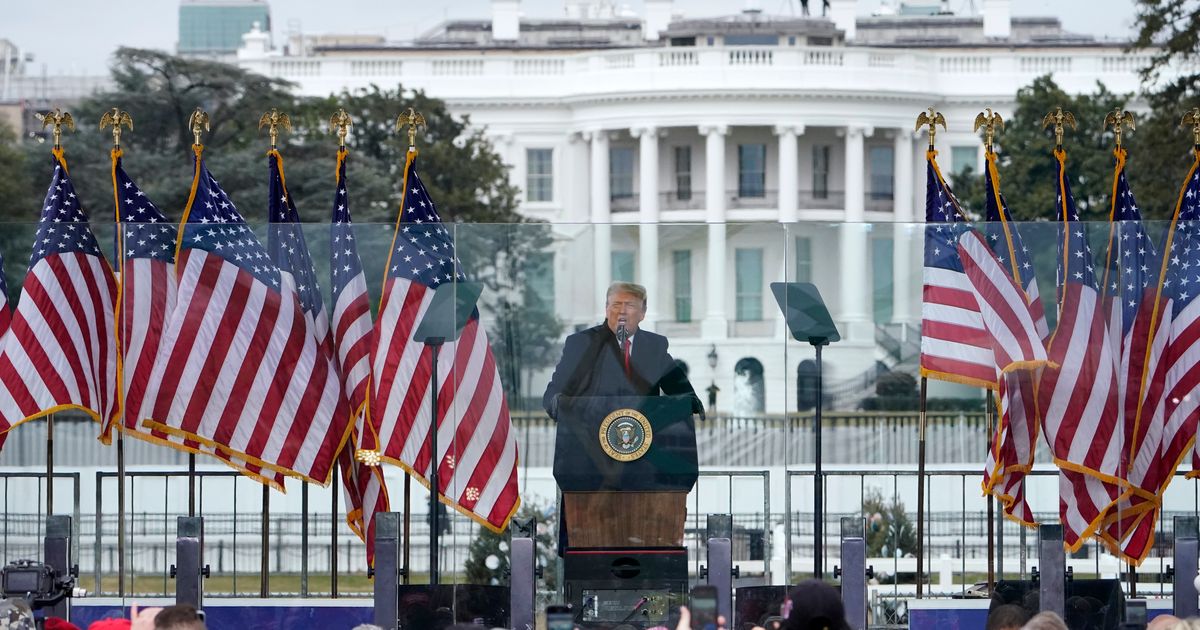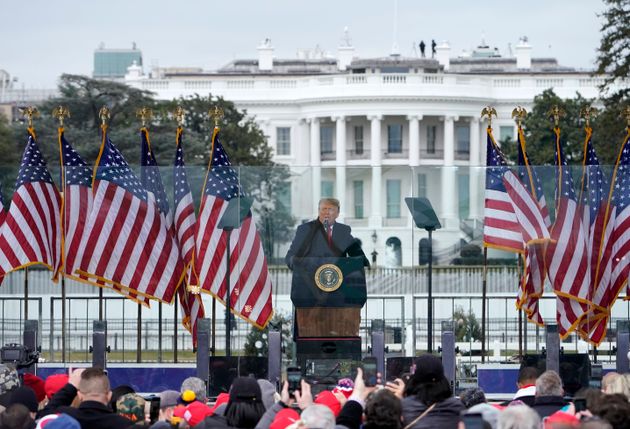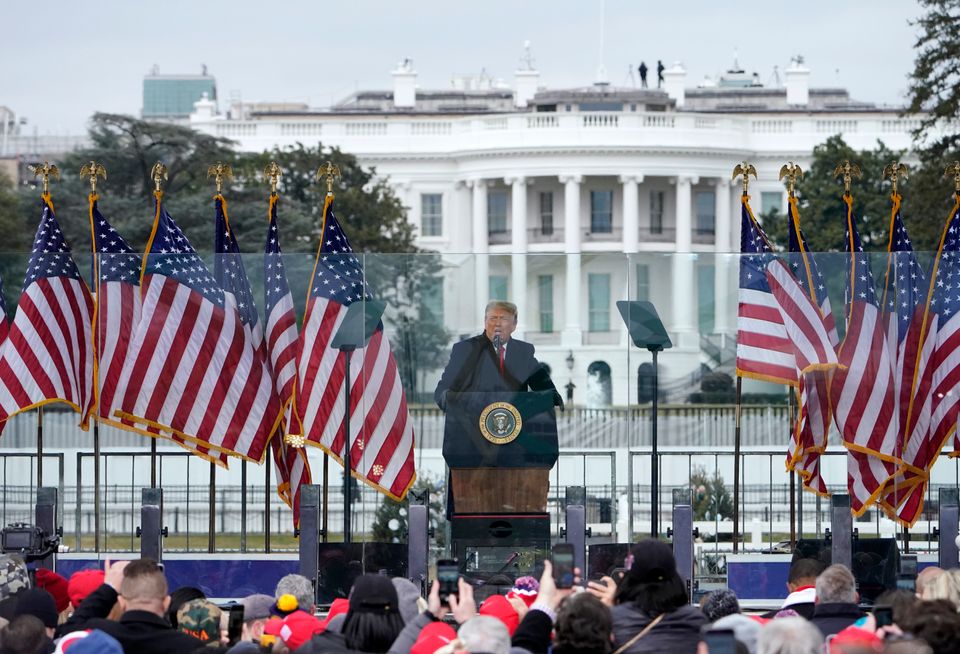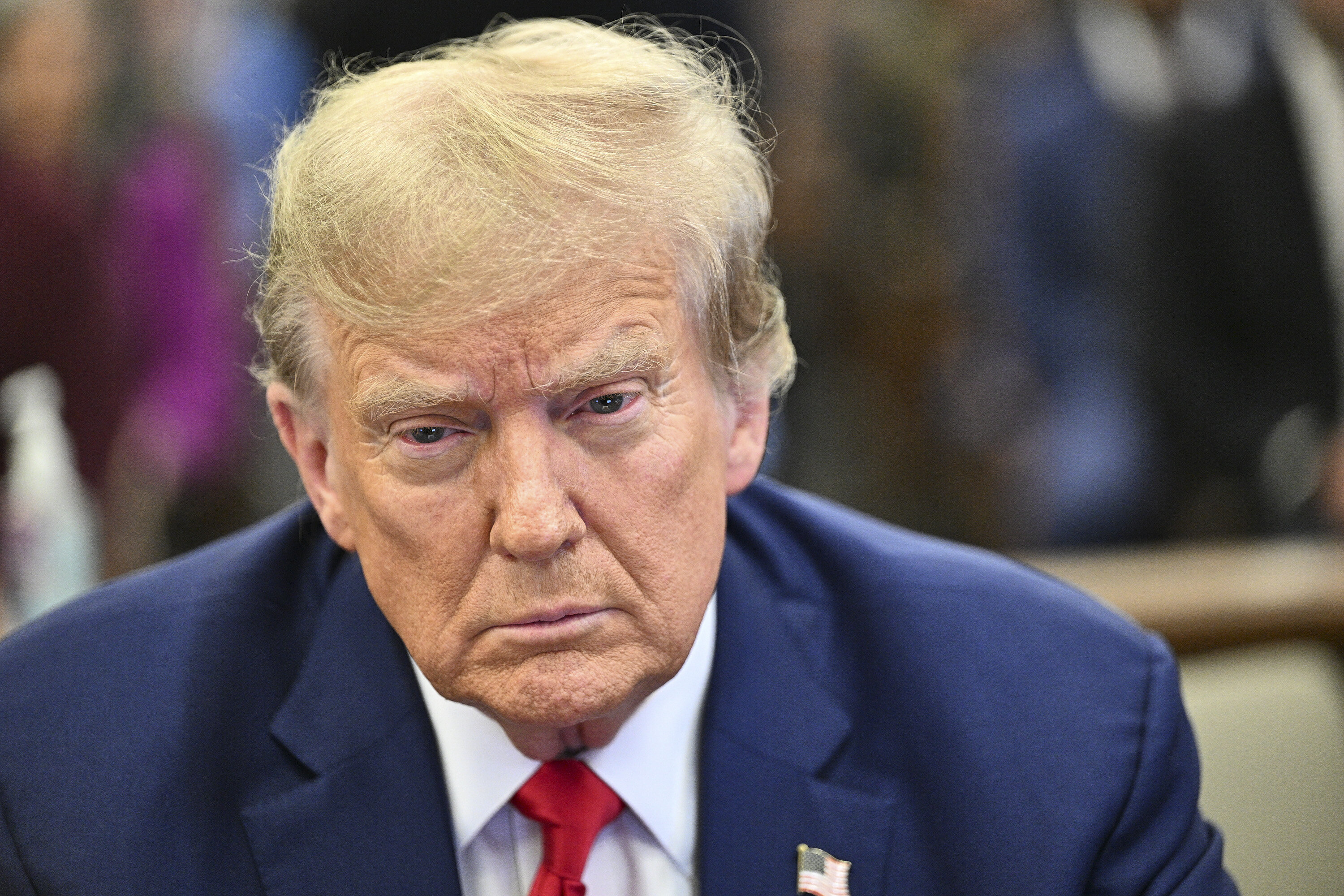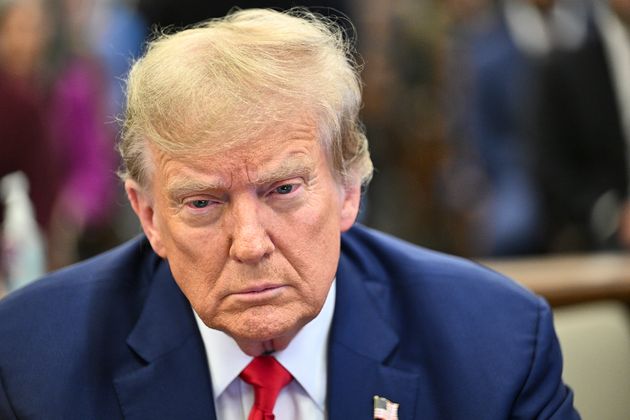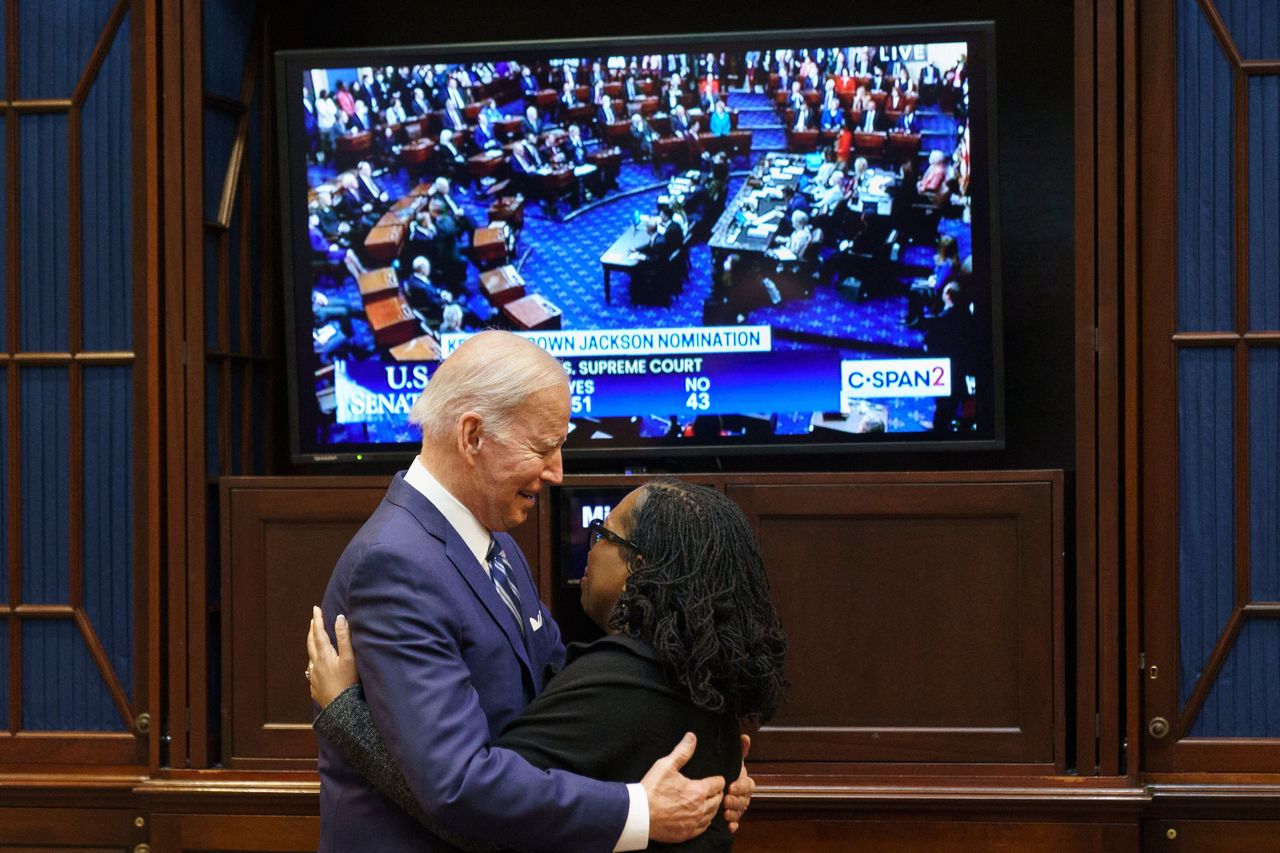Let me begin with a confession. I was, until yesterday, more upbeat than I had any right to be. Sure: the anti-trans were attacking us. Again. But we were protected. In depth. Like some WWI squaddie cowering in our trenches. First line the Gender Recognition Act (GRA). Second line, the Equality Act (EA). Third line, Human Rights (HR).
I wake today to a changed world. One in which I, as a trans woman, may soon find myself forced, when out and about, when staying in a hospital, when working, to venture into spaces populated by a demographic – cis men – that I know, from bitter experience, is dangerous and potentially wishes me harm.
How did we get here? It begins with yesterday’s decision, based on a tautology and, intended or not, a lie. The first, the tautology, is the much-touted claim that they have settled the question of “what is a woman?” Because a woman is defined by ‘biological sex,’ innit? It’s a good soundbite. It is not, though – however much the learned judges may claim otherwise – a definition. Do they mean chromosomes? Boobs? A (functioning) uterus? A birth certificate? They did not say. Though no doubt there will be many suggestions in the days and weeks to come.
Second, they assert that no trans people will be disadvantaged by this ruling. Funny that. For, the torrent of tears in my online feed yesterday, and the long line of trans folk turning up to declare themselves in despair, in pieces, and otherwise broken by this, suggests an entire community would beg to differ.
Where public bodies have stood their ground, as in the case brought against the Scottish government, the narrowness of British legal procedure means that all too often, trans people were excluded altogether from deliberations on their fate. Before ruling, the Supreme Court heard from the plaintiff, from several other organisations that might justifiably be considered anti-trans, and the Scottish government. And no trans people.
<div class="js-react-hydrator" data-component-name="Twitter" data-component-id="2178" data-component-props="{"itemType":"rich","index":15,"contentIndexByType":1,"contentListType":"embed","code":"
","type":"rich","meta":{"author":"Good Law Project","author_url":"https://twitter.com/GoodLawProject","cache_age":86400,"description":"The Supreme Court sided with FWS. But it didn’t hear from a single trans person. This ruling sets a dangerous precedent and erases trans women from protections. It puts trans rights back 20 years. We won’t stop fighting for trans rights  — Good Law Project (@GoodLawProject) April 16, 2025\n\n\n","options":{"_maxwidth":{"label":"Adjust width","placeholder":"220-550, in px","value":""},"_theme":{"value":"","values":{"dark":"Use dark theme"}}},"provider_name":"Twitter","title":"Good Law Project on Twitter / X","type":"rich","url":"https://twitter.com/GoodLawProject/status/1912436399724216402","version":"1.0"},"flags":[],"enhancements":{},"fullBleed":false,"options":{"theme":"life","device":"desktop","editionInfo":{"id":"uk","name":"U.K.","link":"https://www.huffingtonpost.co.uk","locale":"en_GB"},"originalEdition":"uk","isMapi":false,"isAmp":false,"isAdsFree":false,"isVideoEntry":false,"isEntry":true,"isMt":false,"entryId":"6800fa33e4b0e7e6a3f52072","entryPermalink":"https://www.huffingtonpost.co.uk/entry/supreme-court-ruling-response_uk_6800fa33e4b0e7e6a3f52072","entryTagsList":"lgbt,trans,supreme-court,trans-rights","sectionSlug":"lifestyle","deptSlug":null,"sectionRedirectUrl":null,"subcategories":"politics","isWide":true,"headerOverride":null,"noVideoAds":false,"disableFloat":false,"isNative":false,"commercialVideo":{"provider":"custom","site_and_category":"uk.lifestyle","package":null},"isHighline":false,"vidibleConfigValues":{"cid":"60afc140cf94592c45d7390c","disabledWithMapiEntries":false,"overrides":{"all":"60b8e525cdd90620331baaf4"},"whitelisted":["56c5f12ee4b03a39c93c9439","56c6056ee4b01f2b7e1b5f35","59bfee7f9e451049f87f550b","5acccbaac269d609ef44c529","570278d2e4b070ff77b98217","57027b4be4b070ff77b98d5c","56fe95c4e4b0041c4242016b","570279cfe4b06d08e3629954","5ba9e8821c2e65639162ccf1","5bcd9904821576674bc55ced","5d076ca127f25f504327c72e","5b35266b158f855373e28256","5ebac2e8abddfb04f877dff2","60b8e525cdd90620331baaf4","60b64354b171b7444beaff4d","60d0d8e09340d7032ad0fb1a","60d0d90f9340d7032ad0fbeb","60d0d9949340d7032ad0fed3","60d0d9f99340d7032ad10113","60d0daa69340d7032ad104cf","60d0de02b627221e9d819408"],"playlists":{"default":"57bc306888d2ff1a7f6b5579","news":"56c6dbcee4b04edee8beb49c","politics":"56c6dbcee4b04edee8beb49c","entertainment":"56c6e7f2e4b0983aa64c60fc","tech":"56c6f70ae4b043c5bdcaebf9","parents":"56cc65c2e4b0239099455b42","lifestyle":"56cc66a9e4b01f81ef94e98c"},"playerUpdates":{"56c6056ee4b01f2b7e1b5f35":"60b8e525cdd90620331baaf4","56c5f12ee4b03a39c93c9439":"60d0d8e09340d7032ad0fb1a","59bfee7f9e451049f87f550b":"60d0d90f9340d7032ad0fbeb","5acccbaac269d609ef44c529":"60d0d9949340d7032ad0fed3","5bcd9904821576674bc55ced":"60d0d9f99340d7032ad10113","5d076ca127f25f504327c72e":"60d0daa69340d7032ad104cf","5ebac2e8abddfb04f877dff2":"60d0de02b627221e9d819408"}},"connatixConfigValues":{"defaultPlayer":"16b0ecc6-802c-4120-845f-e90629812c4d","clickToPlayPlayer":"823ac03a-0f7e-4bcb-8521-a5b091ae948d","videoPagePlayer":"05041ada-93f7-4e86-9208-e03a5b19311b","defaultPlaylist":"2e062669-71b4-41df-b17a-df6b1616bc8f"},"topConnatixThumnbailSrc":"data:image/png;base64,iVBORw0KGgoAAAANSUhEUgAAAAEAAAABCAQAAAC1HAwCAAAAC0lEQVR42mNkYAAAAAYAAjCB0C8AAAAASUVORK5CYII=","customAmpComponents":[],"ampAssetsUrl":"https://amp.assets.huffpost.com","videoTraits":null,"positionInUnitCounts":{"buzz_head":{"count":0},"buzz_body":{"count":0},"buzz_bottom":{"count":0}},"positionInSubUnitCounts":{"article_body":{"count":25},"blog_summary":{"count":0},"before_you_go_content":{"count":0}},"connatixCountsHelper":{"count":0},"buzzfeedTracking":{"context_page_id":"6800fa33e4b0e7e6a3f52072","context_page_type":"buzz","destination":"huffpost","mode":"desktop","page_edition":"en-uk"},"tags":[{"name":" lgbt","slug":"lgbt","links":{"relativeLink":"news/lgbt","permalink":"https://www.huffingtonpost.co.uk/news/lgbt","mobileWebLink":"https://www.huffingtonpost.co.uk/news/lgbt"},"url":"https://www.huffingtonpost.co.uk/news/lgbt/"},{"name":"trans","slug":"trans","links":{"relativeLink":"news/trans","permalink":"https://www.huffingtonpost.co.uk/news/trans","mobileWebLink":"https://www.huffingtonpost.co.uk/news/trans"},"url":"https://www.huffingtonpost.co.uk/news/trans/"},{"name":"Supreme Court","slug":"supreme-court","links":{"relativeLink":"news/supreme-court","permalink":"https://www.huffingtonpost.co.uk/news/supreme-court","mobileWebLink":"https://www.huffingtonpost.co.uk/news/supreme-court"},"relegenceSubjectId":4941764,"url":"https://www.huffingtonpost.co.uk/news/supreme-court/"},{"name":"trans rights","slug":"trans-rights","links":{"relativeLink":"news/trans-rights","permalink":"https://www.huffingtonpost.co.uk/news/trans-rights","mobileWebLink":"https://www.huffingtonpost.co.uk/news/trans-rights"},"url":"https://www.huffingtonpost.co.uk/news/trans-rights/"}],"isLiveblogLive":null,"isLiveblog":false,"cetUnit":"buzz_body","bodyAds":["
— Good Law Project (@GoodLawProject) April 16, 2025\n\n\n","options":{"_maxwidth":{"label":"Adjust width","placeholder":"220-550, in px","value":""},"_theme":{"value":"","values":{"dark":"Use dark theme"}}},"provider_name":"Twitter","title":"Good Law Project on Twitter / X","type":"rich","url":"https://twitter.com/GoodLawProject/status/1912436399724216402","version":"1.0"},"flags":[],"enhancements":{},"fullBleed":false,"options":{"theme":"life","device":"desktop","editionInfo":{"id":"uk","name":"U.K.","link":"https://www.huffingtonpost.co.uk","locale":"en_GB"},"originalEdition":"uk","isMapi":false,"isAmp":false,"isAdsFree":false,"isVideoEntry":false,"isEntry":true,"isMt":false,"entryId":"6800fa33e4b0e7e6a3f52072","entryPermalink":"https://www.huffingtonpost.co.uk/entry/supreme-court-ruling-response_uk_6800fa33e4b0e7e6a3f52072","entryTagsList":"lgbt,trans,supreme-court,trans-rights","sectionSlug":"lifestyle","deptSlug":null,"sectionRedirectUrl":null,"subcategories":"politics","isWide":true,"headerOverride":null,"noVideoAds":false,"disableFloat":false,"isNative":false,"commercialVideo":{"provider":"custom","site_and_category":"uk.lifestyle","package":null},"isHighline":false,"vidibleConfigValues":{"cid":"60afc140cf94592c45d7390c","disabledWithMapiEntries":false,"overrides":{"all":"60b8e525cdd90620331baaf4"},"whitelisted":["56c5f12ee4b03a39c93c9439","56c6056ee4b01f2b7e1b5f35","59bfee7f9e451049f87f550b","5acccbaac269d609ef44c529","570278d2e4b070ff77b98217","57027b4be4b070ff77b98d5c","56fe95c4e4b0041c4242016b","570279cfe4b06d08e3629954","5ba9e8821c2e65639162ccf1","5bcd9904821576674bc55ced","5d076ca127f25f504327c72e","5b35266b158f855373e28256","5ebac2e8abddfb04f877dff2","60b8e525cdd90620331baaf4","60b64354b171b7444beaff4d","60d0d8e09340d7032ad0fb1a","60d0d90f9340d7032ad0fbeb","60d0d9949340d7032ad0fed3","60d0d9f99340d7032ad10113","60d0daa69340d7032ad104cf","60d0de02b627221e9d819408"],"playlists":{"default":"57bc306888d2ff1a7f6b5579","news":"56c6dbcee4b04edee8beb49c","politics":"56c6dbcee4b04edee8beb49c","entertainment":"56c6e7f2e4b0983aa64c60fc","tech":"56c6f70ae4b043c5bdcaebf9","parents":"56cc65c2e4b0239099455b42","lifestyle":"56cc66a9e4b01f81ef94e98c"},"playerUpdates":{"56c6056ee4b01f2b7e1b5f35":"60b8e525cdd90620331baaf4","56c5f12ee4b03a39c93c9439":"60d0d8e09340d7032ad0fb1a","59bfee7f9e451049f87f550b":"60d0d90f9340d7032ad0fbeb","5acccbaac269d609ef44c529":"60d0d9949340d7032ad0fed3","5bcd9904821576674bc55ced":"60d0d9f99340d7032ad10113","5d076ca127f25f504327c72e":"60d0daa69340d7032ad104cf","5ebac2e8abddfb04f877dff2":"60d0de02b627221e9d819408"}},"connatixConfigValues":{"defaultPlayer":"16b0ecc6-802c-4120-845f-e90629812c4d","clickToPlayPlayer":"823ac03a-0f7e-4bcb-8521-a5b091ae948d","videoPagePlayer":"05041ada-93f7-4e86-9208-e03a5b19311b","defaultPlaylist":"2e062669-71b4-41df-b17a-df6b1616bc8f"},"topConnatixThumnbailSrc":"data:image/png;base64,iVBORw0KGgoAAAANSUhEUgAAAAEAAAABCAQAAAC1HAwCAAAAC0lEQVR42mNkYAAAAAYAAjCB0C8AAAAASUVORK5CYII=","customAmpComponents":[],"ampAssetsUrl":"https://amp.assets.huffpost.com","videoTraits":null,"positionInUnitCounts":{"buzz_head":{"count":0},"buzz_body":{"count":0},"buzz_bottom":{"count":0}},"positionInSubUnitCounts":{"article_body":{"count":25},"blog_summary":{"count":0},"before_you_go_content":{"count":0}},"connatixCountsHelper":{"count":0},"buzzfeedTracking":{"context_page_id":"6800fa33e4b0e7e6a3f52072","context_page_type":"buzz","destination":"huffpost","mode":"desktop","page_edition":"en-uk"},"tags":[{"name":" lgbt","slug":"lgbt","links":{"relativeLink":"news/lgbt","permalink":"https://www.huffingtonpost.co.uk/news/lgbt","mobileWebLink":"https://www.huffingtonpost.co.uk/news/lgbt"},"url":"https://www.huffingtonpost.co.uk/news/lgbt/"},{"name":"trans","slug":"trans","links":{"relativeLink":"news/trans","permalink":"https://www.huffingtonpost.co.uk/news/trans","mobileWebLink":"https://www.huffingtonpost.co.uk/news/trans"},"url":"https://www.huffingtonpost.co.uk/news/trans/"},{"name":"Supreme Court","slug":"supreme-court","links":{"relativeLink":"news/supreme-court","permalink":"https://www.huffingtonpost.co.uk/news/supreme-court","mobileWebLink":"https://www.huffingtonpost.co.uk/news/supreme-court"},"relegenceSubjectId":4941764,"url":"https://www.huffingtonpost.co.uk/news/supreme-court/"},{"name":"trans rights","slug":"trans-rights","links":{"relativeLink":"news/trans-rights","permalink":"https://www.huffingtonpost.co.uk/news/trans-rights","mobileWebLink":"https://www.huffingtonpost.co.uk/news/trans-rights"},"url":"https://www.huffingtonpost.co.uk/news/trans-rights/"}],"isLiveblogLive":null,"isLiveblog":false,"cetUnit":"buzz_body","bodyAds":["
\r\n\r\n HPGam.cmd.push(function(){\r\n\t\treturn HPGam.render(\"inline-1\", \"entry_paragraph_1\", false, false);\r\n });\r\n\r\n","
\r\n\r\n HPGam.cmd.push(function(){\r\n\t\treturn HPGam.render(\"inline\", \"entry_paragraph_2\", false, false);\r\n });\r\n\r\n","
\r\n\r\n HPGam.cmd.push(function(){\r\n\t\treturn HPGam.render(\"inline-2\", \"entry_paragraph_3\", false, false);\r\n });\r\n\r\n","
\r\n\r\n HPGam.cmd.push(function(){\r\n\t\treturn HPGam.render(\"inline-infinite\", \"repeating_dynamic_display\", false, false);\r\n });\r\n\r\n"],"adCount":0},"isCollectionEmbed":false}”>



 — Good Law Project (@GoodLawProject) April 16, 2025\n\n\n","options":{"_maxwidth":{"label":"Adjust width","placeholder":"220-550, in px","value":""},"_theme":{"value":"","values":{"dark":"Use dark theme"}}},"provider_name":"Twitter","title":"Good Law Project on Twitter / X","type":"rich","url":"https://twitter.com/GoodLawProject/status/1912436399724216402","version":"1.0"},"flags":[],"enhancements":{},"fullBleed":false,"options":{"theme":"life","device":"desktop","editionInfo":{"id":"uk","name":"U.K.","link":"https://www.huffingtonpost.co.uk","locale":"en_GB"},"originalEdition":"uk","isMapi":false,"isAmp":false,"isAdsFree":false,"isVideoEntry":false,"isEntry":true,"isMt":false,"entryId":"6800fa33e4b0e7e6a3f52072","entryPermalink":"https://www.huffingtonpost.co.uk/entry/supreme-court-ruling-response_uk_6800fa33e4b0e7e6a3f52072","entryTagsList":"lgbt,trans,supreme-court,trans-rights","sectionSlug":"lifestyle","deptSlug":null,"sectionRedirectUrl":null,"subcategories":"politics","isWide":true,"headerOverride":null,"noVideoAds":false,"disableFloat":false,"isNative":false,"commercialVideo":{"provider":"custom","site_and_category":"uk.lifestyle","package":null},"isHighline":false,"vidibleConfigValues":{"cid":"60afc140cf94592c45d7390c","disabledWithMapiEntries":false,"overrides":{"all":"60b8e525cdd90620331baaf4"},"whitelisted":["56c5f12ee4b03a39c93c9439","56c6056ee4b01f2b7e1b5f35","59bfee7f9e451049f87f550b","5acccbaac269d609ef44c529","570278d2e4b070ff77b98217","57027b4be4b070ff77b98d5c","56fe95c4e4b0041c4242016b","570279cfe4b06d08e3629954","5ba9e8821c2e65639162ccf1","5bcd9904821576674bc55ced","5d076ca127f25f504327c72e","5b35266b158f855373e28256","5ebac2e8abddfb04f877dff2","60b8e525cdd90620331baaf4","60b64354b171b7444beaff4d","60d0d8e09340d7032ad0fb1a","60d0d90f9340d7032ad0fbeb","60d0d9949340d7032ad0fed3","60d0d9f99340d7032ad10113","60d0daa69340d7032ad104cf","60d0de02b627221e9d819408"],"playlists":{"default":"57bc306888d2ff1a7f6b5579","news":"56c6dbcee4b04edee8beb49c","politics":"56c6dbcee4b04edee8beb49c","entertainment":"56c6e7f2e4b0983aa64c60fc","tech":"56c6f70ae4b043c5bdcaebf9","parents":"56cc65c2e4b0239099455b42","lifestyle":"56cc66a9e4b01f81ef94e98c"},"playerUpdates":{"56c6056ee4b01f2b7e1b5f35":"60b8e525cdd90620331baaf4","56c5f12ee4b03a39c93c9439":"60d0d8e09340d7032ad0fb1a","59bfee7f9e451049f87f550b":"60d0d90f9340d7032ad0fbeb","5acccbaac269d609ef44c529":"60d0d9949340d7032ad0fed3","5bcd9904821576674bc55ced":"60d0d9f99340d7032ad10113","5d076ca127f25f504327c72e":"60d0daa69340d7032ad104cf","5ebac2e8abddfb04f877dff2":"60d0de02b627221e9d819408"}},"connatixConfigValues":{"defaultPlayer":"16b0ecc6-802c-4120-845f-e90629812c4d","clickToPlayPlayer":"823ac03a-0f7e-4bcb-8521-a5b091ae948d","videoPagePlayer":"05041ada-93f7-4e86-9208-e03a5b19311b","defaultPlaylist":"2e062669-71b4-41df-b17a-df6b1616bc8f"},"topConnatixThumnbailSrc":"data:image/png;base64,iVBORw0KGgoAAAANSUhEUgAAAAEAAAABCAQAAAC1HAwCAAAAC0lEQVR42mNkYAAAAAYAAjCB0C8AAAAASUVORK5CYII=","customAmpComponents":[],"ampAssetsUrl":"https://amp.assets.huffpost.com","videoTraits":null,"positionInUnitCounts":{"buzz_head":{"count":0},"buzz_body":{"count":0},"buzz_bottom":{"count":0}},"positionInSubUnitCounts":{"article_body":{"count":25},"blog_summary":{"count":0},"before_you_go_content":{"count":0}},"connatixCountsHelper":{"count":0},"buzzfeedTracking":{"context_page_id":"6800fa33e4b0e7e6a3f52072","context_page_type":"buzz","destination":"huffpost","mode":"desktop","page_edition":"en-uk"},"tags":[{"name":" lgbt","slug":"lgbt","links":{"relativeLink":"news/lgbt","permalink":"https://www.huffingtonpost.co.uk/news/lgbt","mobileWebLink":"https://www.huffingtonpost.co.uk/news/lgbt"},"url":"https://www.huffingtonpost.co.uk/news/lgbt/"},{"name":"trans","slug":"trans","links":{"relativeLink":"news/trans","permalink":"https://www.huffingtonpost.co.uk/news/trans","mobileWebLink":"https://www.huffingtonpost.co.uk/news/trans"},"url":"https://www.huffingtonpost.co.uk/news/trans/"},{"name":"Supreme Court","slug":"supreme-court","links":{"relativeLink":"news/supreme-court","permalink":"https://www.huffingtonpost.co.uk/news/supreme-court","mobileWebLink":"https://www.huffingtonpost.co.uk/news/supreme-court"},"relegenceSubjectId":4941764,"url":"https://www.huffingtonpost.co.uk/news/supreme-court/"},{"name":"trans rights","slug":"trans-rights","links":{"relativeLink":"news/trans-rights","permalink":"https://www.huffingtonpost.co.uk/news/trans-rights","mobileWebLink":"https://www.huffingtonpost.co.uk/news/trans-rights"},"url":"https://www.huffingtonpost.co.uk/news/trans-rights/"}],"isLiveblogLive":null,"isLiveblog":false,"cetUnit":"buzz_body","bodyAds":["
— Good Law Project (@GoodLawProject) April 16, 2025\n\n\n","options":{"_maxwidth":{"label":"Adjust width","placeholder":"220-550, in px","value":""},"_theme":{"value":"","values":{"dark":"Use dark theme"}}},"provider_name":"Twitter","title":"Good Law Project on Twitter / X","type":"rich","url":"https://twitter.com/GoodLawProject/status/1912436399724216402","version":"1.0"},"flags":[],"enhancements":{},"fullBleed":false,"options":{"theme":"life","device":"desktop","editionInfo":{"id":"uk","name":"U.K.","link":"https://www.huffingtonpost.co.uk","locale":"en_GB"},"originalEdition":"uk","isMapi":false,"isAmp":false,"isAdsFree":false,"isVideoEntry":false,"isEntry":true,"isMt":false,"entryId":"6800fa33e4b0e7e6a3f52072","entryPermalink":"https://www.huffingtonpost.co.uk/entry/supreme-court-ruling-response_uk_6800fa33e4b0e7e6a3f52072","entryTagsList":"lgbt,trans,supreme-court,trans-rights","sectionSlug":"lifestyle","deptSlug":null,"sectionRedirectUrl":null,"subcategories":"politics","isWide":true,"headerOverride":null,"noVideoAds":false,"disableFloat":false,"isNative":false,"commercialVideo":{"provider":"custom","site_and_category":"uk.lifestyle","package":null},"isHighline":false,"vidibleConfigValues":{"cid":"60afc140cf94592c45d7390c","disabledWithMapiEntries":false,"overrides":{"all":"60b8e525cdd90620331baaf4"},"whitelisted":["56c5f12ee4b03a39c93c9439","56c6056ee4b01f2b7e1b5f35","59bfee7f9e451049f87f550b","5acccbaac269d609ef44c529","570278d2e4b070ff77b98217","57027b4be4b070ff77b98d5c","56fe95c4e4b0041c4242016b","570279cfe4b06d08e3629954","5ba9e8821c2e65639162ccf1","5bcd9904821576674bc55ced","5d076ca127f25f504327c72e","5b35266b158f855373e28256","5ebac2e8abddfb04f877dff2","60b8e525cdd90620331baaf4","60b64354b171b7444beaff4d","60d0d8e09340d7032ad0fb1a","60d0d90f9340d7032ad0fbeb","60d0d9949340d7032ad0fed3","60d0d9f99340d7032ad10113","60d0daa69340d7032ad104cf","60d0de02b627221e9d819408"],"playlists":{"default":"57bc306888d2ff1a7f6b5579","news":"56c6dbcee4b04edee8beb49c","politics":"56c6dbcee4b04edee8beb49c","entertainment":"56c6e7f2e4b0983aa64c60fc","tech":"56c6f70ae4b043c5bdcaebf9","parents":"56cc65c2e4b0239099455b42","lifestyle":"56cc66a9e4b01f81ef94e98c"},"playerUpdates":{"56c6056ee4b01f2b7e1b5f35":"60b8e525cdd90620331baaf4","56c5f12ee4b03a39c93c9439":"60d0d8e09340d7032ad0fb1a","59bfee7f9e451049f87f550b":"60d0d90f9340d7032ad0fbeb","5acccbaac269d609ef44c529":"60d0d9949340d7032ad0fed3","5bcd9904821576674bc55ced":"60d0d9f99340d7032ad10113","5d076ca127f25f504327c72e":"60d0daa69340d7032ad104cf","5ebac2e8abddfb04f877dff2":"60d0de02b627221e9d819408"}},"connatixConfigValues":{"defaultPlayer":"16b0ecc6-802c-4120-845f-e90629812c4d","clickToPlayPlayer":"823ac03a-0f7e-4bcb-8521-a5b091ae948d","videoPagePlayer":"05041ada-93f7-4e86-9208-e03a5b19311b","defaultPlaylist":"2e062669-71b4-41df-b17a-df6b1616bc8f"},"topConnatixThumnbailSrc":"data:image/png;base64,iVBORw0KGgoAAAANSUhEUgAAAAEAAAABCAQAAAC1HAwCAAAAC0lEQVR42mNkYAAAAAYAAjCB0C8AAAAASUVORK5CYII=","customAmpComponents":[],"ampAssetsUrl":"https://amp.assets.huffpost.com","videoTraits":null,"positionInUnitCounts":{"buzz_head":{"count":0},"buzz_body":{"count":0},"buzz_bottom":{"count":0}},"positionInSubUnitCounts":{"article_body":{"count":25},"blog_summary":{"count":0},"before_you_go_content":{"count":0}},"connatixCountsHelper":{"count":0},"buzzfeedTracking":{"context_page_id":"6800fa33e4b0e7e6a3f52072","context_page_type":"buzz","destination":"huffpost","mode":"desktop","page_edition":"en-uk"},"tags":[{"name":" lgbt","slug":"lgbt","links":{"relativeLink":"news/lgbt","permalink":"https://www.huffingtonpost.co.uk/news/lgbt","mobileWebLink":"https://www.huffingtonpost.co.uk/news/lgbt"},"url":"https://www.huffingtonpost.co.uk/news/lgbt/"},{"name":"trans","slug":"trans","links":{"relativeLink":"news/trans","permalink":"https://www.huffingtonpost.co.uk/news/trans","mobileWebLink":"https://www.huffingtonpost.co.uk/news/trans"},"url":"https://www.huffingtonpost.co.uk/news/trans/"},{"name":"Supreme Court","slug":"supreme-court","links":{"relativeLink":"news/supreme-court","permalink":"https://www.huffingtonpost.co.uk/news/supreme-court","mobileWebLink":"https://www.huffingtonpost.co.uk/news/supreme-court"},"relegenceSubjectId":4941764,"url":"https://www.huffingtonpost.co.uk/news/supreme-court/"},{"name":"trans rights","slug":"trans-rights","links":{"relativeLink":"news/trans-rights","permalink":"https://www.huffingtonpost.co.uk/news/trans-rights","mobileWebLink":"https://www.huffingtonpost.co.uk/news/trans-rights"},"url":"https://www.huffingtonpost.co.uk/news/trans-rights/"}],"isLiveblogLive":null,"isLiveblog":false,"cetUnit":"buzz_body","bodyAds":["



